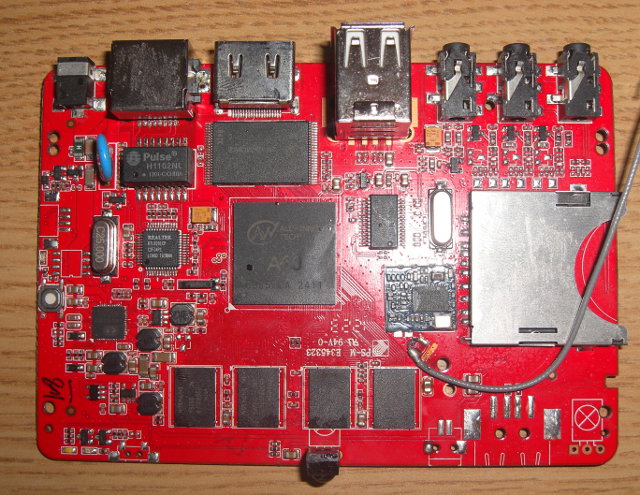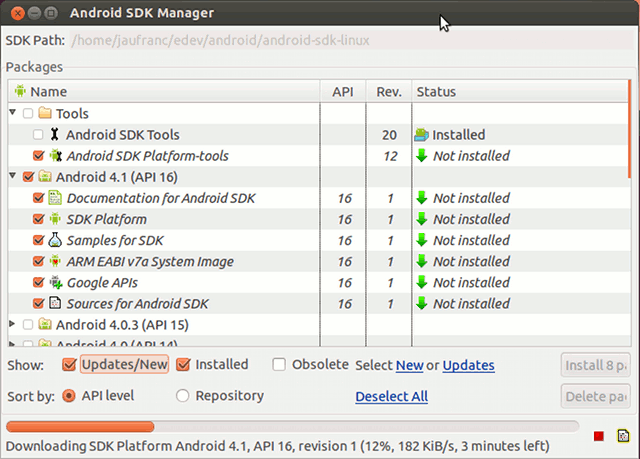AnDevCon is a technical conference for software developers building Android apps, and the fourth Android developer conference will take place in San Francisco on December 4-7, 2012. The organizers have already listed the schedule, including details about the workshops and classes which will take place at the conference. The 4th of December is reserved for workshops, and the other 3 days can be spent on shorter classes. All workshops will provide sample code, as well as most classes, excluding the overview session and business related sessions. There will be three full day Android workshops: Android Development Boot Camp – Hands-on introduction to Android application development and the tools essential to the process. Beyond an introduction to the basics, this workshop also covers some of the common hurdles met with development, and how to overcome them. You will also have the opportunity to build an Android app of your own where […]
ARM TechCon 2012: Software & System Design Schedule
ARM Technology Conference (TechCon) 2012 will take place on October 30 – November 1, 2011, in Santa Clara, and UBM Electronics has already posted the detailed schedule for the event. The first day (October 30) will be Chip Designs day and the other 2 days will focus on Software & System Design. Even if, like me, you are not be able to go there, it’s still interesting to know what will be discussed at the conference, to have a better idea where ARM is going, and what new technologies and/or development techniques are (or will become) available. There will be around 70 sessions categorized in 15 tracks: Android / Open Source – Development tools, middleware for native application development, and optimized drivers for Android, Linux, FreeRTOS etc … Compute Platforms – Development and implementation of standards and specifications, from board/module design to consumer and server designs Developing / Debugging – […]
Telechips Releases Linux Kernel 3.0.8 and Android ICS Source Code
Telechips has just uploaded the GPL source code for kernel 3.0.8 and Android 4.0 to the open source section of their website. If downloading from telechips website is too slow, you can also try alternate downloads (Thanks Gabe!): Kernel-3.0.8.tar.gz Ics.tar.gz I’ve also created 2 repositories in github: telechips-linux – Linux kernel source code telechips-android – Android platform open source code (webkit + OpenMAX source code) It haven’t looked into the source code in details yet, but hopefully, this will allow developers to customize the firmware running on Telechips TCC8925 based mini PCs such as CX-01 mini Android TV Box or Zero Devices Z900. Jean-Luc Aufranc (CNXSoft)Jean-Luc started CNX Software in 2010 as a part-time endeavor, before quitting his job as a software engineering manager, and starting to write daily news, and reviews full time later in 2011. www.cnx-software.com
HackBerry: AllWinner A10 Development Board with 1GB RAM
After the Raspberry Pi, the Gooseberry, here comes the HackBerry. This is another AllWinner board similar to the Gooseberry, but which Ethernet, a full sized USB ports, an IR sensor and 1GB RAM. Here are the board specifications : SoC – AllWinner A10 System Memory – 1 GB RAM Storage – 4GB Flash + SDHC slot USB – 2x USB 2.0 ports Connectivity: 10/100Mbit Ethernet Wifi – 802.11 b/g/n Video Output – 1 x HDMI + 1x Composite Audio I/O – Headphone + microphone IR sensor The board runs Android 4.0, but since it’s an AllWinner device, you can run what you want. In a way it’s similar to the Mele A1000, except it has more memory, but lacks SATA, VGA output and has one less USB port. I can’t see the serial port pins on the PCB picture either. There is pricing information or availability yet, as Jasbir only […]
Qualcomm Showcases Quad Core Snapdragon APQ8064 Application Processor
Way back in February 2011, Qualcomm announced the Snapdragon APQ8064, a quad core application processor clocked at up to 2.5 GHz, that was (and still is) supposed to be available in products end of 2012, beginning of 2013. They now have samples, and showcased the processor in an Android tablet reference design at UpLink 2012. The APQ8064 is part of SnapDragon S4 Pro family and features 4 Krait cores running at up to 1.5 GHz when all four cores are running, or up to 1.7 GHz when only one core is active, according to Anandtech. So it appears they did not follow up on the 2.5 GHz promise. APQ8064 is the first SoC featuring Adreno 320 GPU, and will be followed by MSM8960 later on. The demo below shows the 3D performance of the Qualcomm processor and GPU, and Raj Talluri, Senior Vice President, Product Management at Qualcomm, claims the […]
XBMC for Android on Mele A1000 Media Player (Video)
Following this morning announcement, I’ve started to build XBMC for Android using the instructions on XBMC Android github repository, but it takes hours on my machine. In the meantime, I’ve found a prebuilt apk that I’ve tried on my Mele A1000 and shot a (super blurry) video. This is still a development version, so there are a lot of bugs, but it shows good progress. The user interface renders at 28 fps and it’s very smooth, although CPU usage is about 65%. The remote control can work properly, but XBMC does not respond to mouse clicks and keyboard input. It can find UPNP servers (Windows) and locate your file. SMB client crashes XBMC on my system I’ve tried Big Buck Bunny 480p, 720p and 1080p, and none of the sample can play smoothly, so NEON software decoding does not appear to be fast enough to play videos smoothly. The APK […]
Installing Android SDK on Ubuntu 12.04
The official instructions to install Android SDK do not appear to be really up-to-date for Ubuntu 12.04, so I’ll post how I’ve installed the Android SDK and Eclipse on Ubuntu 12.04. First download and decompress Android SDK for Linux:
|
1 2 |
wget http://dl.google.com/android/android-sdk_r20-linux.tgz tar xzvf android-sdk_r20-linux.tgz |
on 64-bit Ubuntu:
|
1 |
apt-get install ia32-libs |
Sun Java is not part of Ubuntu packages anymore, so you’ll need to use openjdk instead
|
1 |
apt-get install openjdk-6-jdk |
Now install the SDK
|
1 2 |
cd android-sdk-linux/tools ./android sdk |
Android SDK Manager should show up. Use the default recommended packages and platforms, as well as any extra packages you may need, and click on Install x packages, accept all licenses and after installation is complete, the Android SDK is installed. Eclipse IDE is optional, but it’s the most widely used IDE to develop Android apps. You can install Eclipse as follows:
|
1 |
sudo apt-get install eclipse-jdt |
Once both Android packages and platforms, and eclipse are installed, start eclipse:
|
1 |
eclipse |
Then in the top menu, click on Help->Install […]
XBMC Media Center Coming to Android
I’ve received a mysterious picture this morning without further details… After a little Google search, it appears XBMC has announced their progress on XBMC for Android. There was already XBMC remote and thin client available on Google Play, but the latest announcement is the real deal, and XBMC can be launched on you Android based devices be it a set-top box, a tablet, a phone, or whatever… It will be the same user experience as on the desktop Have a look at a short (and blurry) teaser video showing XBMC running in Android. “Big Buck Bunny” video is to media player what Angry Birds is to tablet, it has to be shown during demos… XBMC developers explain that most devices only support software decode of audio and video for now, but expect on OpenMAX based player to eventually be available. The main development platform was a Pivos XIOS DS set-top-box […]







